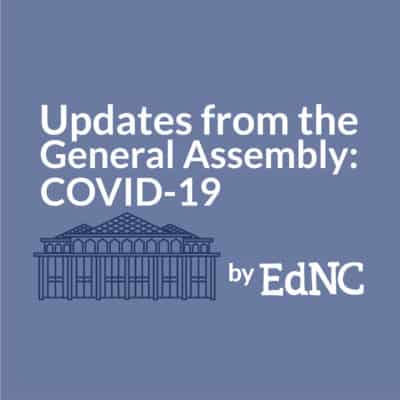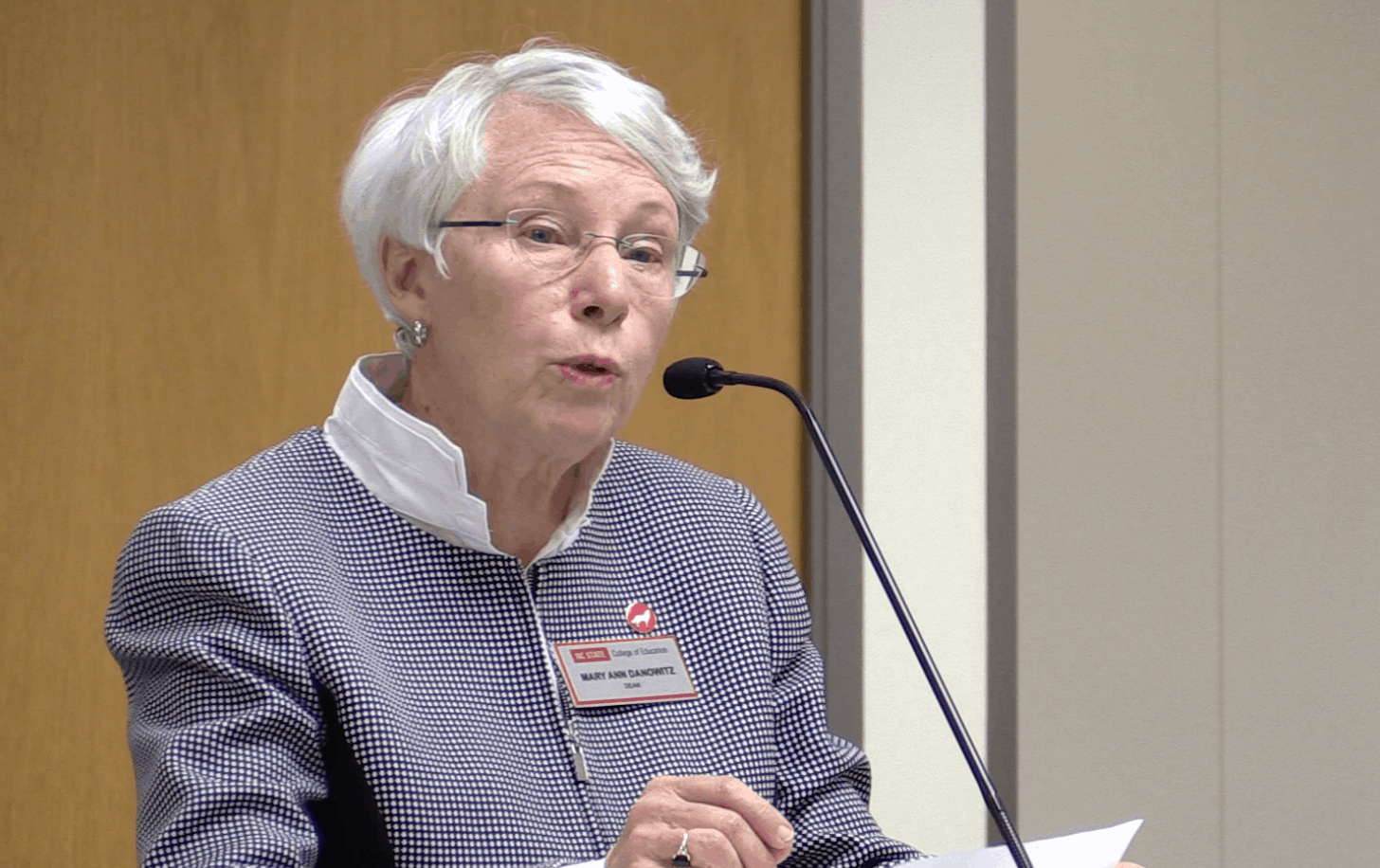House and Senate education committees considered important education legislation on Tuesday. In the House K-12 Education Committee, lawmakers gave favorable approval to a bill that would require all school districts to conduct background checks on teachers. In the Senate Education Committee, senators discussed the revival of the popular Teaching Fellows Program.
Protect Students in Schools
The House committee revisited legislation similar to a bill filed last session which did not make it out of the General Assembly. The bill focused on ensuring all teachers in the state received thorough background checks. The measure came in response to a USA Today article that gave North Carolina an F for teacher screening.
The bill filed this session forces school districts to jump through a number of hoops when it comes to employing teachers.
The primary goal of the bill was originally to require that teachers be subjected to a criminal history check through the Department of Public Safety which would check their background both federally and in the state. The provision was amended slightly during the committee meeting.
But another important aspect involves communication between districts. For instance, if a school is looking to hire a teacher who previously worked in another district, the original district would be required to let them know if the teacher’s resignation or dismissal was a result of a criminal history.
“The key to this whole bill that you have in front of you is communication,” said committee co-chair Rep. Jeffrey Elmore, R-Wilkes. “Now we have the different entities communicating with each other.”
One of the primary sponsors of the bill, Rep. Harry Warren, R-Rowan, said the bill originally would have placed the cost of the background checks with the state. But the version voted on in committee places the burden on local districts to pay for the background checks which Warren estimated to be between $35 and $40 a person.
Rep. Donna McDowell White, R-Johnston, took issue with the funding mechanism.
“Is this bill going to be a mandate that’s funded to the local school system?” she asked Warren.
Warren said that having the state cover the expense would have required giving the state Department of Public Instruction about $250,000 and two additional positions.
“The responsibility falling back on the local LEA (Local Education Authority) disperses any cost throughout the state there on the individual LEA,” he said.
Some House members also expressed concerns that having any criminal history would automatically disqualify an applicant from receiving a teaching position, but the bill leaves that decision to local school districts. The bill only ensures that districts have actually carried out the background check.
The amendment to the bill passed during the committee meeting gives local districts the option of having the background checks performed by the Department of Public Safety or through commercial screening.
Rep. John Bradford, R-Mecklenburg, introduced an amendment, stating DPS would only do a fingerprint background check and that might not be enough.
“The challenge with fingerprints is all it really does is help confirm identity and things that may be tagged to it such as an arrest,” he said.
He argued that commercial screenings provide a more complete picture beyond a simple arrest record.
Warren said that he has heard no opposition to the bill. He also said that while many school districts perform background checks, not all do.
The bill now moves on to the full House.
Teaching Fellows Program
The return of the Teaching Fellows Program was presented to the Senate Education Committee today for initial discussion.
The original Teaching Fellows Program, started in 1986, gave scholarships to students to attend college and train to become a teacher, provided they were willing to teach in North Carolina schools for at least four years after graduation. It was ended in 2011 by the General Assembly.
The revamped program provides up to $8,250 to teach in STEM (Science, Technology, Education, Mathematics) and special education fields.
The teachers who participate in the program will have a year of their loan forgiven for every one year they spend at a low-performing school or two years at a non-low performing school.
Committee co-chair Rep. Chad Barefoot, R-Wake, presented on the bill and said it covers some of the subject areas where teachers are most lacking.
“Our schools are facing a great need for the best and brightest teachers in the science, technology, engineering and mathematic fields, as well as special needs,” he said.
He went on to explain how the program would provide $6 million for about 160 teachers a year using money from the North Carolina Education Endowment Fund, which was championed in part by Lieutenant Governor Dan Forest. Forest spoke briefly at the committee meeting.
“When we created the endowment fund, the idea was to create a fund that would level out the peaks and the valleys, if you will, of the annual budget cycle,” he said.
He added that the fund was meant to be used for things outside the norm of traditional education funding, something beyond teacher funding and school resources.
“That fund was created and that fund started to get funded and now it’s sitting there and it needs a purpose,” he said. “And so we have a purpose today with the Teaching Fellows Program to do exactly what that fund was established to do.”
The program would be run by a commission created by the bill. The body would choose five state institutions with education programs that would participate.
Some lawmakers expressed concern that with only five institutions represented, there might not be enough geographical diversity to the program.
“Geography is not what we are placing our emphasis on,” Barefoot said. “What we are placing our emphasis on is excellence.”
He said the goal is for the commission to pick the five best education preparation programs in the state to participate.
State Superintendent Mark Johnson also spoke to the committee to express his support for the bill. He said he has been touring the state and talking to teachers about the program.
“I can tell you there is a lot of excitement about this proposal,” he said. “Teachers are really excited to have teaching fellows and to have it so focused.”
The committee also heard from speakers, all of whom supported the legislation.
Mary Ann Danowitz, dean of North Carolina State University’s College of Education, was one of those speakers, and she said the program is crucial.
“Establishing this program will attract the passionate people we need to teach our students,” she said. “And by bringing these passionate people back, we will continue to improve student success in the state and provide a skilled workforce.”
The bill will go to a vote by the committee tomorrow.
Recommended reading




